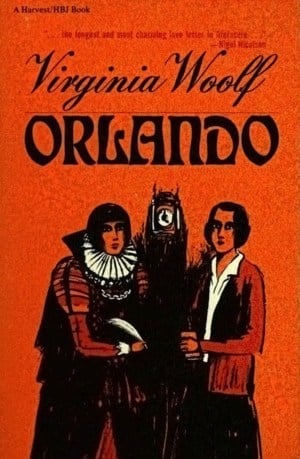
Orlando (Chapter 3) Virginia Woolf
На этой странице вы найдете полный текст песни "Orlando (Chapter 3)" от Virginia Woolf. Lyrxo предлагает вам самый полный и точный текст этой композиции без лишних отвлекающих факторов. Узнайте все куплеты и припев, чтобы лучше понять любимую песню и насладиться ею в полной мере. Идеально для фанатов и всех, кто ценит качественную музыку.

It is, indeed, highly unfortunate, and much to be regretted that at this
stage of Orlando's career, when he played a most important part in the
public life of his country, we have least information to go upon. We know
that he discharged his duties to admiration--witness his Bath and his
Dukedom. We know that he had a finger in some of the most delicate
negotiations between King Charles and the Turks--to that, treaties in the
vault of the Record Office bear testimony. But the revolution which broke
out during his period of office, and the fire which followed, have so
damaged or destroyed all those papers from which any trustworthy record
could be drawn, that what we can give is lamentably incomplete. Often the
paper was scorched a deep brown in the middle of the most important
sentence. Just when we thought to elucidate a secret that has puzzled
historians for a hundred years, there was a hole in the manuscript big
enough to put your finger through. We have done our best to piece out a
meagre summary from the charred fragments that remain; but often it has
been necessary to speculate, to surmise, and even to use the imagination.
Orlando's day was passed, it would seem, somewhat in this fashion. About
seven, he would rise, wrap himself in a long Turkish cloak, light a
cheroot, and lean his elbows on the parapet. Thus he would stand, gazing
at the city beneath him, apparently entranced. At this hour the mist
would lie so thick that the domes of Santa Sofia and the rest would seem
to be afloat; gradually the mist would uncover them; the bubbles would be
seen to be firmly fixed; there would be the river; there the Galata
Bridge; there the green-turbaned pilgrims without eyes or noses, begging
alms; there the pariah dogs picking up offal; there the shawled women;
there the innumerable donkeys; there men on horses carrying long poles.
Soon, the whole town would be astir with the cracking of whips, the
beating of gongs, cryings to prayer, lashing of mules, and rattle of
brass-bound wheels, while sour odours, made from bread fermenting and
incense, and spice, rose even to the heights of Pera itself and seemed
the very breath of the strident multi-coloured and barbaric population.
stage of Orlando's career, when he played a most important part in the
public life of his country, we have least information to go upon. We know
that he discharged his duties to admiration--witness his Bath and his
Dukedom. We know that he had a finger in some of the most delicate
negotiations between King Charles and the Turks--to that, treaties in the
vault of the Record Office bear testimony. But the revolution which broke
out during his period of office, and the fire which followed, have so
damaged or destroyed all those papers from which any trustworthy record
could be drawn, that what we can give is lamentably incomplete. Often the
paper was scorched a deep brown in the middle of the most important
sentence. Just when we thought to elucidate a secret that has puzzled
historians for a hundred years, there was a hole in the manuscript big
enough to put your finger through. We have done our best to piece out a
meagre summary from the charred fragments that remain; but often it has
been necessary to speculate, to surmise, and even to use the imagination.
Orlando's day was passed, it would seem, somewhat in this fashion. About
seven, he would rise, wrap himself in a long Turkish cloak, light a
cheroot, and lean his elbows on the parapet. Thus he would stand, gazing
at the city beneath him, apparently entranced. At this hour the mist
would lie so thick that the domes of Santa Sofia and the rest would seem
to be afloat; gradually the mist would uncover them; the bubbles would be
seen to be firmly fixed; there would be the river; there the Galata
Bridge; there the green-turbaned pilgrims without eyes or noses, begging
alms; there the pariah dogs picking up offal; there the shawled women;
there the innumerable donkeys; there men on horses carrying long poles.
Soon, the whole town would be astir with the cracking of whips, the
beating of gongs, cryings to prayer, lashing of mules, and rattle of
brass-bound wheels, while sour odours, made from bread fermenting and
incense, and spice, rose even to the heights of Pera itself and seemed
the very breath of the strident multi-coloured and barbaric population.
Комментарии (0)
Минимальная длина комментария — 50 символов.












